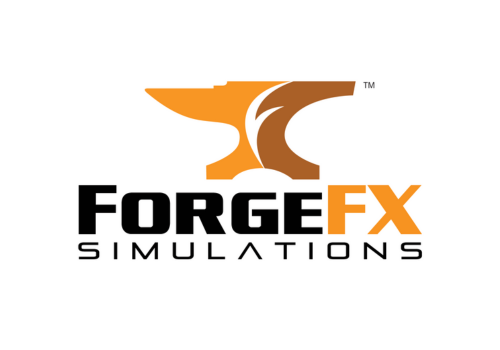When the U.S. Congress passed the Infrastructure Investment and Jobs Act in 2021, it committed to a once-in-a-generation investment in the nation’s infrastructure. Departments of Transportation (DOTs), municipalities, public works departments, and other government agencies will increase the number of tenders put out to contractors, and contractors are trying to be selected for as many of them as they can.
However, the key to increasing the number of government contracts your company wins may not be what you think; it isn’t the product your company delivers or even your company’s performance, but it’s the relationships your people have with key decision-makers.
According to the Federal Government, this bipartisan infrastructure act, combined with the Build Back Framework, will add on average 1.5 million jobs per year for the next 10 years.
Departments of Transportation (DOTs), municipalities, public works departments, and other government agencies will increase the number of tenders put out to contractors, and contractors are trying to be selected for as many of them as they can.
However, the key to increasing the number of government contracts your company wins may not be what you think; it isn’t the product your company delivers or even your company’s performance, but it’s the relationships your people have with key decision-makers.
“There are a couple of different plates to spin here, but what it really comes down to is developing sophisticated relationships with the decision-makers,” says Richard Krolewski, Founder, Regulatory Resources, LLC. His company works with construction businesses and suppliers to build relationships with government agencies, such as departments of transportation.
Krolewski also facilitates the DOT Advisory Board through his Regulatory Resources company. Additionally, he serves as the CEO of the FRP Institute for Civil Infrastructure, a trade group formed last year to promote the use of non-corrosive reinforcement in transportation projects.
“Generally, inside the materials office of a DOT is its tactical arm in the sense that all specifications that revolve around projects come specifically from that office. Getting ahead of the curve by having positive relationships with people working in those offices is very valuable because it helps you stand out from being just another contractor,” Krolewski says.
And, when DOTs put out their memorandums for upcoming new projects, having a positive relationship with people in the DOT will increase your chances of learning about them sooner than the competition. You won’t be informed ahead of it going public, but they may reach out to you, specifically, after it has been made public.
“Bidding isn’t always about cost; it’s not about being the cheapest,” Krolewski says. “For contractors, it almost always comes down to price, but the quality is a more important factor in establishing relationships with project owners. You want to be known in the industry as a quality producer or supplier who works with quality vendors. And then you need to be able to back that up with first-class service. We work as a liaison between the industry and the DOT, which enhances the opportunities for our clients.”
All government agencies have approved lists of suppliers/vendors they use for various projects, so it’s incumbent on the contractor to know who those people are as well. Then it would be beneficial to take a step further and learn about how these products work and how they can benefit the project that the contractor is trying to obtain.
“A contractor who doesn’t do their homework will fall victim to the terms and conditions they are putting forward,” says Krolewski. However, if there are only a few suppliers, and there’s enough lead time, the contractor can go out and shop for like-minded products or technologies from non-approved companies and push them into a position where the products can get approved by the agency to help them develop more suppliers on their lists or lower their price point.
 How to connect with decision-makers
How to connect with decision-makers
“The whole idea is to take yourself out of the realm of just being another contractor,” says Krolewski. “Why scour around looking for projects? It makes more sense to go right to the source.”
According to Krolewski, contractors who want to increase the number of government contracts they win must do work that demonstrates their company is a quality organization that understands the use of the desired materials and technologies. If the decision-makers are confident in your company, that goes a long way to choosing your company.
Besides cold calling and cyberstalking, there are four ways of building relationships with these decision makers:
1. Speak at conferences. People at DOTs and other agencies attend conferences and trade shows to gain a greater understanding of topics that affect infrastructure. By presenting at a conference, you demonstrate your company employs experts and that you want to share that knowledge.
“It’s all about the correct exposure to your customer and putting yourself out there as an expert in what you are doing will instill confidence in your services as they recognize how your organization stands above the average,” says Krolewski.
2. Get involved, particularly with organizations and trade associations that support specification development, product approval, and product demonstration.
“It’s critical to be in the know in terms of what are the upcoming technologies and what is the latest and greatest,” says Krolewski. “For example, DOTs are moving in the direction of replacing traditional materials like steel reinforcement with non-corrosive materials, such as fiber-reinforced polymers. Getting ahead of that curve will help you stand out.”
3. A sophisticated website. Your website should communicate with words, pictures, and video your company’s experience, expertise, values, and commitments to safety and quality.
“The days of doing business driving around your truck, shaking hands, and going for drinks is over,” says Krolewski. “You don’t have the opportunity to develop interpersonal relationships the way you could have 5-10 years ago, so having a sophisticated web site with a clear message is critical because more business is being done electronically than ever before.”
4. Active social media. While a website gives decision makers a snapshot of your company when they’re reviewing your company while examining your bid, social media is the modern “drop in and say ‘hello’”.
“Building that kind of infrastructure into your contracting organization is absolutely critical,” says Krolewski. “Social media allows you to put your company in front of decision makers on a regularly; it really has become the greatest means for regularly connecting with people.”
No matter the size of business, winning government contracts is a big deal and can be essential for long-term success. While these are not easy to secure, particularly in the beginning, building relationships is the best way to get a foot in the door.
Read Next
How Small Construction Firms Can Capitalize on Government Contracts
Expert Q&A: What the Newly Passed Infrastructure Bill Really Means to Contractors
3 Ways to Capitalize on Government Contracts











